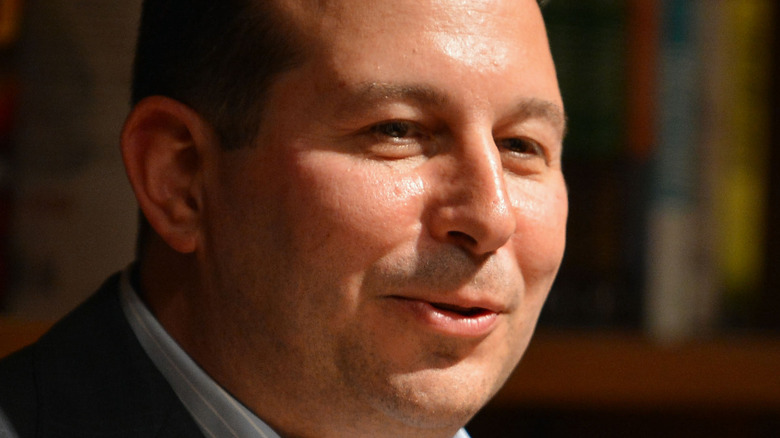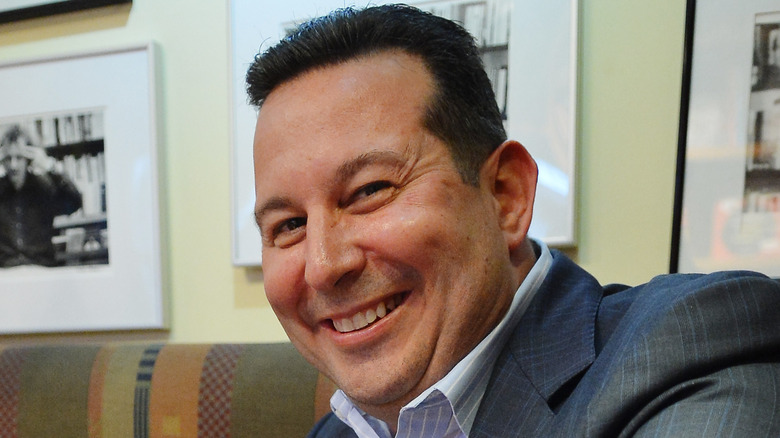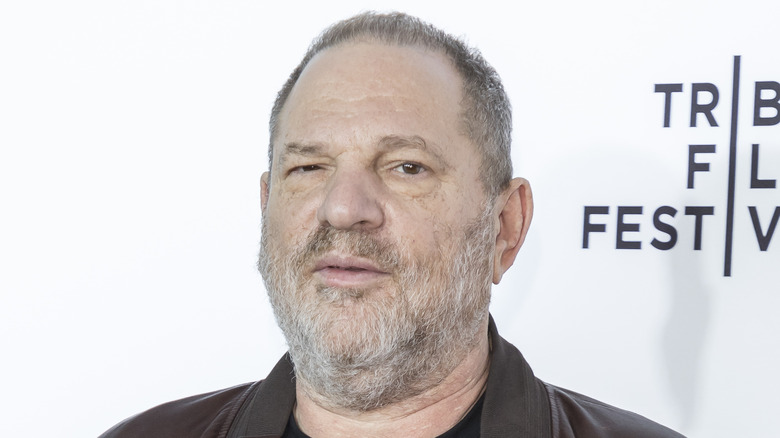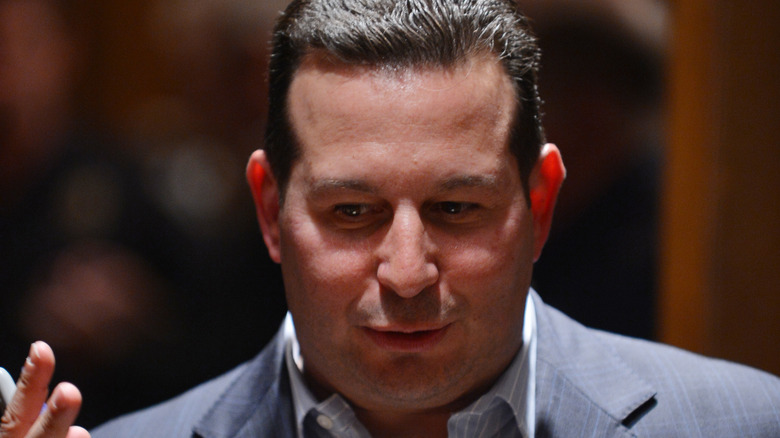Whatever Happened To Casey Anthony's Attorney, Jose Baez?
As Casey Anthony stood in a Florida court on July 5, 2011, awaiting her fate as the verdict in her case was read, standing beside her was her lawyer, defense attorney Jose Baez. Photos from that day showed Baez and Anthony, along with other members of the defense team, tightly holding hands in the courtroom during the reading of the verdict. The Orlando mother was standing trial for the murder of her 2-year-old daughter, Caylee. A jury would find Anthony not guilty on three of the major charges against her, including first-degree murder (via ABC News). Anthony was going to be a free woman and Baez had just won an acquittal in a highly-publicized murder trial.
He famously sported a look of satisfaction on his face in the aftermath of the verdict and his smile made a few headlines. The trial had brought Baez some newfound fame as a high-profile defense attorney. He got his defendant off by proving that she was a liar, yes — but as a result of being raised in a family of liars.
When the media died down after the Anthony trial, Baez did several interviews and wrote a book about the case. "Presumed Guilty: Casey Anthony: The Inside Story," in which Baez discussed his perspective on the case, became a New York Times bestseller. The same year his book was published (2013), Baez happened to be involved in another case that attracted its share of media spotlight.
What did Baez do after the Casey Anthony trial?
After the Casey Anthony case, Baez's name made rounds during the George Zimmerman trial. Zimmerman had been arrested for shooting 17-year-old Trayvon Martin. Despite not defending Zimmerman, Baez was connected to the trial, insofar as he represented a detective who investigated the case. A few years later Baez would be back in the headlines again when he represented NFL player Aaron Hernandez, who faced his second murder trial.
Baez went on to defend Hernandez in his murder case and subsequent appeal, per CNN. It was another highly-publicized case; the former pro football player stood accused of murdering two men, one of whom was his future brother-in-law. Hernandez was acquitted in the case, and it further cemented Baez's reputation as an effective attorney. After the not guilty verdict, Baez was preparing to appeal Hernandez's first murder conviction. Sadly, the former football player committed suicide a few days after his acquittal (via NBC Sports).
Afterwards, Baez found himself somehow linked to other major cases, either representing victims or the accused, reports Boston Globe. He's consistently managed to find his way into the limelight.
Baez was Harvey Weinstein's lawyer for a few months
Perhaps one of the most publicized cases Hollywood has ever seen involved film producer and convicted sex offender Harvey Weinstien, who hired Baez and his co-council Ronald Sullivan to represent him in January 2019. Sullivan recused himself from the case in May 2019 because of backlash from being involed with it in the first place. According to U.S. News & World Report, Weinstein requested a statement of Baez's work after Sullivan left. Baez did not comply and reportedly threatened to leave the case unless he was paid $1 million to cover a fee the two previously agreed upon. Weinstein did not pay up, and Baez did not stay on the case for long after that. In June, the defense attorney asked to be relieved from the case citing poor communication, and "fundamental disagreements," the New York Post reported.
But Weinstein was not going to let Baez off that easily. Variety reports that he is suing Baez for $1 million, claiming that during his time on the case, Baez was preoccupied, unavailable, and not "directly involved" with the case, claiming that Sullivan did most of the work.
Baez represented Dr. William Husel who was accused of murdering 14 patients
Most recently, Baez became part of the defense team for Dr. William Husel, who stood accused of murdering 14 patients when he overprescribed them the painkiller fentanyl in 2018. Dr. Husel worked the night shift at Mount Carmel Health System in Columbus, Ohio. Prosecution, through 53 witnesses, claimed that Dr. Husel intended to kill, or at least hasten the deaths of, patients who were critically ill or near death with the prescriptions that were 10 times the normal dose (via NBC News).
The defense team had trouble proving a case against Dr. Husel because, despite their number of witnesses, they could not find a motive, according to People. Dr. Husel told the jury that he cared for his patients and thought the doses he prescribed for them were appropriate. People reported that Baez "poked holes" in the prosecution's case, and he told the publication that Dr. Husel was a "scapegoat." He also said that Dr. Husel did nothing wrong, adding that the prosecution was "travesty."



